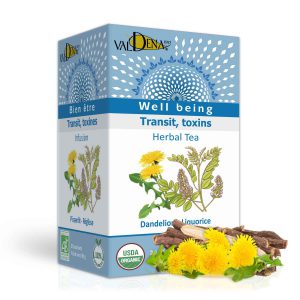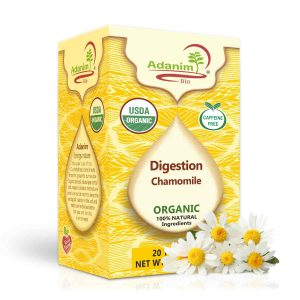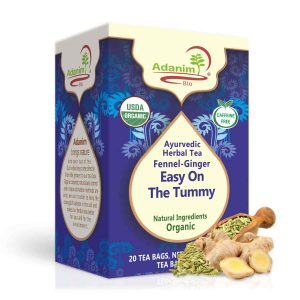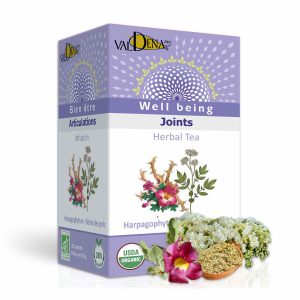5 Best Laxative Teas for Constipation Relief
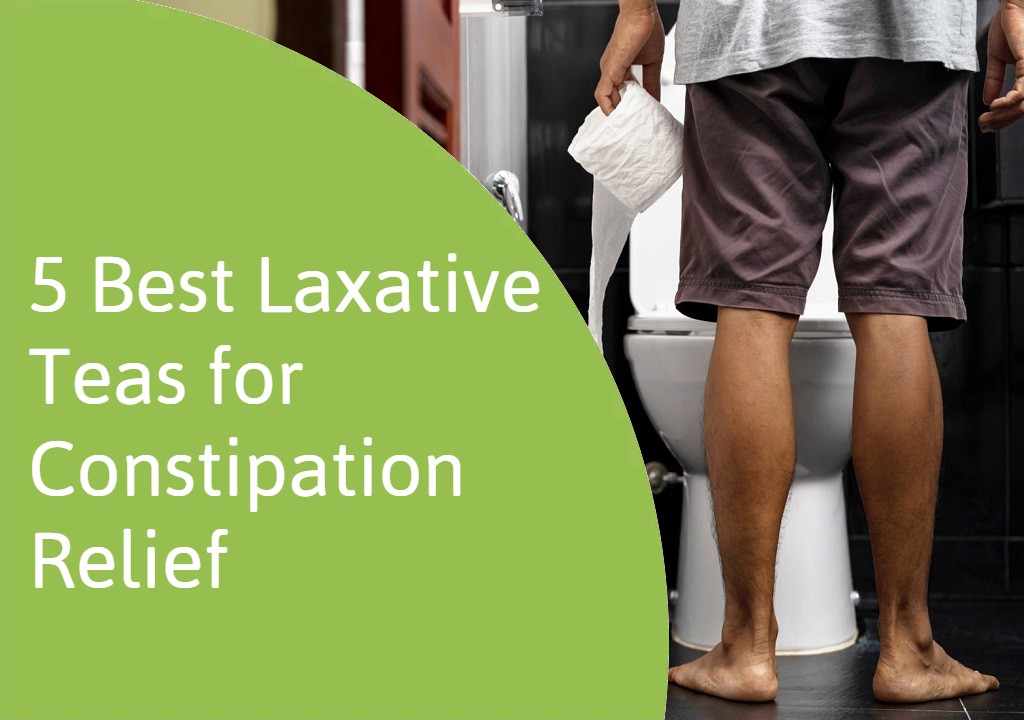
Laxative Tea
Laxative tea is a type of herbal tea that is made with ingredients that have natural laxative properties. This type of tea can be helpful for those who are struggling with constipation or irregular bowel movements. Laxative tea can also help to cleanse the colon and promote overall gut health.
There are a few things to keep in mind when brewing laxative tea. First, it is important to start with fresh, high-quality ingredients. This will ensure that the tea is effective and safe. It is also important to brew the tea properly, following the instructions on the package. Be sure to drink plenty of water throughout the day, as this will help to prevent dehydration.
5 Best Laxative Teas for Constipation Relief
- Special Herbs with 3.5% Senna (Laxative Detox tea)
- Digestion Chamomile Tea for Constipation
- Dandelion Tea for Constipation (Cleansing and Detoxifying Tea)
- Ginger Tea for Constipation (Reduces Bloating)
- Fennel Tea for Constipation (Healthy Detox Benefits)
How Does Laxative Tea Help for Constipation Relief?

When it comes to finding relief from constipation, people have tried just about everything. Some turn to over-the-counter laxatives, while others swear by home remedies like prune juice or olive oil. But what about laxative tea?
Herbal teas have been used for centuries to promote digestive health, and there is some evidence that they can be effective in relieving constipation. The most commonly used herb for laxative tea is Senna. This plant contains compounds that stimulate the intestine and promote bowel movements. While Senna is generally considered safe, it can cause cramping and diarrhea if used in large amounts. For this reason, it’s important to follow the directions on the package and start with a lower dose to see how your body reacts.
Other herbs that may help relieve constipation include fennel, ginger, and licorice root. When brewed into tea, these herbs can help to soothe the digestive tract and promote regularity. If you’re struggling with chronic constipation, talk to your doctor about trying laxative tea as part of your treatment plan.
6 Best Teas for Constipation
Many different herbal laxative teas can be effective for constipation relief. Some of the best herbs for constipation relief include Senna, Dandelion, Chamomile, Ginger, Peppermint, and Fennel.
Best Senna Tea for Constipation Relief (Laxative Detox Tea)
Laxative Detox Tea (Organic)That Helps with Constipation
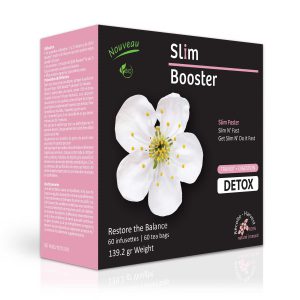
(Slim Booster tea, A gentle laxative for more effortless bowel movements. helps w/ constipation relief)
Senna is a popular herb for constipation relief and is found in many over-the-counter laxatives. This is an herb that has long been used as a natural laxative. Senna works by stimulating the muscles in the intestine to help move stool along. When made into tea, Senna can help to soften the stools and make it easier to pass bowel movements.
Senna tea is generally safe for most people when consumed in moderation. Senna Tea contains sennosides, which are compounds that stimulate bowel movements.
This type of tea is best taken at night before bedtime so that you can have a bowel movement the next morning.
It is important to drink plenty of fluids when taking Senna to avoid dehydration.
Best Dandelion Tea for Constipation – Herbal Tea
Organic Dandelion & Licorice Tea for Cleansing and Detoxifying
Dandelion tea is a popular herbal remedy for constipation. The herb is rich in fiber and has a laxative effect. This makes it an effective natural remedy for constipation. Dandelion tea is also safe to take regularly, unlike some over-the-counter laxatives which can be habit-forming. To make dandelion tea, brew one teaspoon of dried dandelion leaves in a cup of hot water for 10 minutes. Drink the tea two to three times daily until your constipation clears up. Dandelion tea can be found in most health food stores.
Best Chamomile Tea for Constipation Relief- Laxative Tea
Bio Organic Premium Chamomile Tea Infusion
If you’re struggling with constipation, you may be looking for a natural remedy. Chamomile tea is a popular herbal tea remedy for constipation relief. This tea is very popular and can help to relax the muscles in your digestive system so making it easier for waste to pass through. Chamomile tea is made from the dried flowers of the chamomile plant and has a high concentration of flavonoids, which are natural compounds that have laxative effects.
It has a sweet, slightly bitter taste. Chamomile tea is rich in calcium, magnesium, and flavonoids. Chamomile tea is gentle and safe for most people to use as a home remedy for constipation.
To make chamomile tea, add 1-2 teaspoons of dried chamomile flowers to 8 ounces of boiling water. Steep for 10 minutes, then strain and drink. Chamomile tea can be taken up to 3 times daily until constipation relief is achieved.
In addition to drinking chamomile tea, other lifestyle changes can help with constipation relief. These include eating a high-fiber diet, drinking plenty of fluids, and exercising regularly.
Best Ginger Tea for Constipation & Bloating
If you’re looking for a natural way to ease constipation, you may want to try ginger tea. Ginger tea is another great choice for constipation relief as it can help to stimulate digestion and ease any nausea or stomach pain that you may be experiencing.
Ginger is a common ingredient in traditional remedies for digestive problems, and it’s thought to work by stimulating the gastrointestinal tract. Ginger is a well-known remedy for nausea and vomiting, but it is helpful for constipation relief.
Best Fennel Tea for Constipation – Herbal Tea
Organic Fennel Tea, Caffeine Free Herbal Tea (For Bloating and Stomach Pain)
Fennel tea is also a good option for constipation relief as it helps to increase the production of digestive juices and promote regular bowel movements. Fennel tea is thought to work by stimulating the muscles of the digestive tract, which helps to move food through the intestines more quickly. It’s also thought to help increase the production of bile, which can help break down fats and promote regularity.
If you suffer from occasional constipation, there’s a good chance you’re not drinking enough fluids or eating enough fiber-rich foods. One simple remedy is to drink fennel tea. Fennel is a carminative herb that helps relieve gas and bloating. This herbal tea is made from the seeds of the fennel plant, which have long been used as a digestive aid.
If you’re looking for additional relief, try adding a small amount of honey or lemon juice to your tea. These ingredients can help to soothe your stomach and make the tea more palatable.
Best Herbal Peppermint Tea for Constipation
Peppermint tea is another excellent herbal tea for constipation relief as it can help to soothe the digestive system and provide some much-needed pain relief. Peppermint has a relaxant effect on the digestive system, which can help to ease bowel movements. This refreshing tea can be enjoyed throughout the day.
Peppermint is a naturally occurring hybrid of water mint and spearmint that has been used for centuries as a digestive aid. The plant contains menthol, which is a powerful relaxant. When ingested, menthol helps to relax the muscles in the intestine, which can help to move stool along more easily.
Peppermint tea is generally safe for most people when consumed in moderation. However, if you have GERD or are pregnant, you should avoid peppermint tea as it can exacerbate these conditions. If you do decide to try peppermint tea for constipation relief, be sure to start with small doses and increase gradually as needed.
4 Best Herbs for Constipation Relief
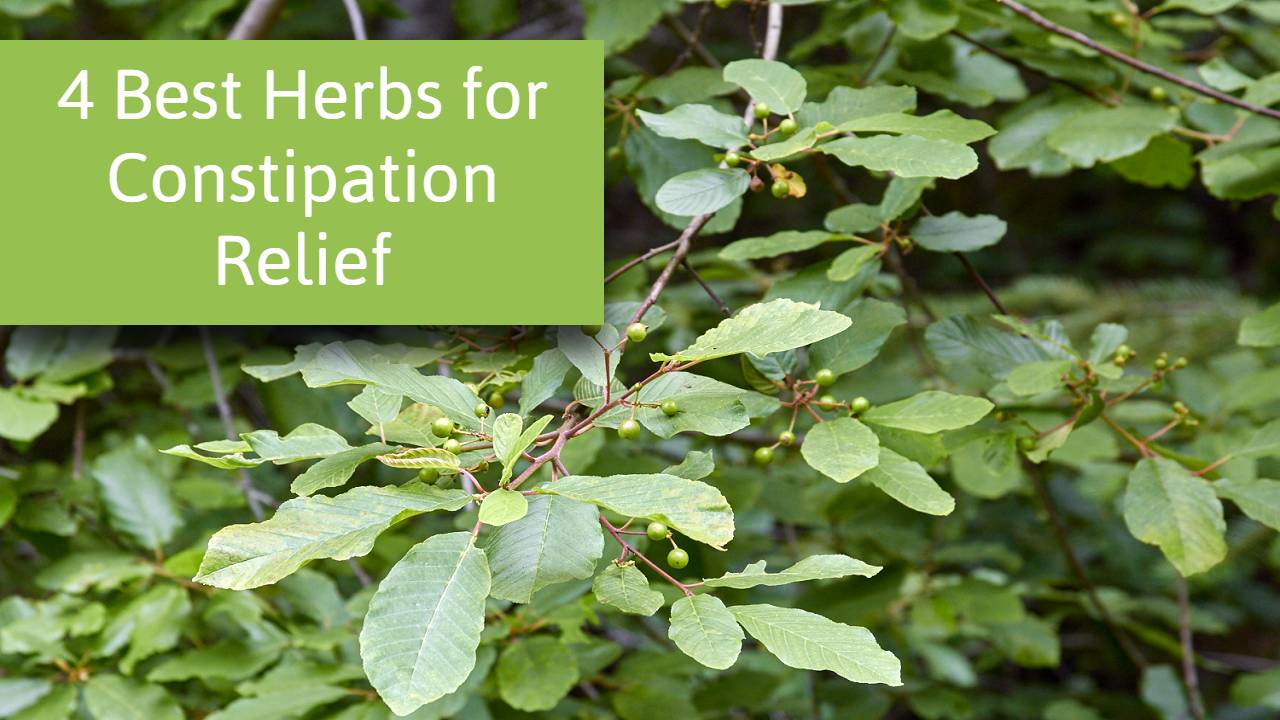
When it comes to digestive problems, there are a variety of different herbs that can be used to help relieve constipation. Some of the best herbs for constipation include:
Senna As A Natural Laxative
Senna is an herb that has been used for centuries as a natural laxative to treat constipation. The active ingredient in Senna, sennosides, stimulates the muscles in the intestine to contract and move stool through the system. Senna is available in many forms, including capsules, tablets, teas, and liquids.
Senna is generally considered safe when used as directed. However, side effects can occur, such as abdominal cramps, diarrhea, and nausea. If you experience any of these side effects, stop taking Senna and consult your healthcare provider.
For constipation relief, adults should take between 10 and 20 milligrams of sennosides daily. It is important to start with a lower dose and increase gradually as needed. Senna can be taken for up to two weeks at a time. If constipation persists after two weeks of treatment, it is important to see a doctor.
Senna is generally safe for most people when used as directed. Side effects may include abdominal cramps, diarrhea, and nausea. If side effects occur, they are usually mild and resolve on their own.
Psyllium husk
Psyllium husk is a herb that has long been used as a natural remedy for constipation relief. The active ingredient in psyllium husk is called mucilage, which is a water-soluble fiber that can help to bulk up stool and make it easier to pass. Psyllium husk is also thought to help stimulate peristalsis, the wavelike contractions of the intestines that help to move stool along.
Psyllium husk is available in powder or capsule form and can be taken with water or juice. Some people may experience gas or bloating when first starting to take psyllium husk, but these side effects typically subside with continued use. For best results, psyllium husk should be taken on an empty stomach.
Aloe Vera
Aloe Vera is a succulent plant that is often used in alternative medicine. The leaves of the plant are used to make a gel that can be applied to the skin or ingested. Aloe Vera has many uses, including constipation relief.
Aloe Vera contains a laxative component that can help to relieve constipation. When taken orally, aloe Vera juice can help to soften stool and promote regular bowel movements. For constipation that is caused by hard stool, aloe Vera can help to lubricate the intestine and make it easier to pass stool.
Aloe Vera is generally safe when taken in small doses. However, it is important to speak with a healthcare provider before taking aloe Vera for constipation relief, as it may interact with certain medications.
Cascara sagrada
Cascara sagrada is an herb that has a long history of being used for constipation relief. The active ingredient in Cascara sagrada is Anthraquinone, which works by stimulating the muscles in the intestine to contract and push waste material out of the body.
Cascara sagrada is available in supplement form and can be taken orally or rectally. When taking cascara sagrada orally, it is important to start with a low dose and gradually increase the dose as needed. The recommended dose for constipation relief is 300-600 mg per day.
Rectal administration of cascara sagrada is more effective than oral administration, but it can cause irritation and abdominal cramping. The recommended dose for rectal administration is 10-20 ml of a 10% solution.
Many people experience occasional constipation, which is often caused by a change in diet or a lack of fiber. While there are several over-the-counter remedies available, some people prefer to treat constipation with herbs.
These herbs work by adding bulk to the stool, which makes it easier to pass through the digestive system. In addition, these herbs also help to increase the amount of water in the stool, which helps to soften it and make it easier to pass. If you are experiencing constipation, talk to your doctor about which herb may be right for you.
5 Natural Remedies for Constipation Relief
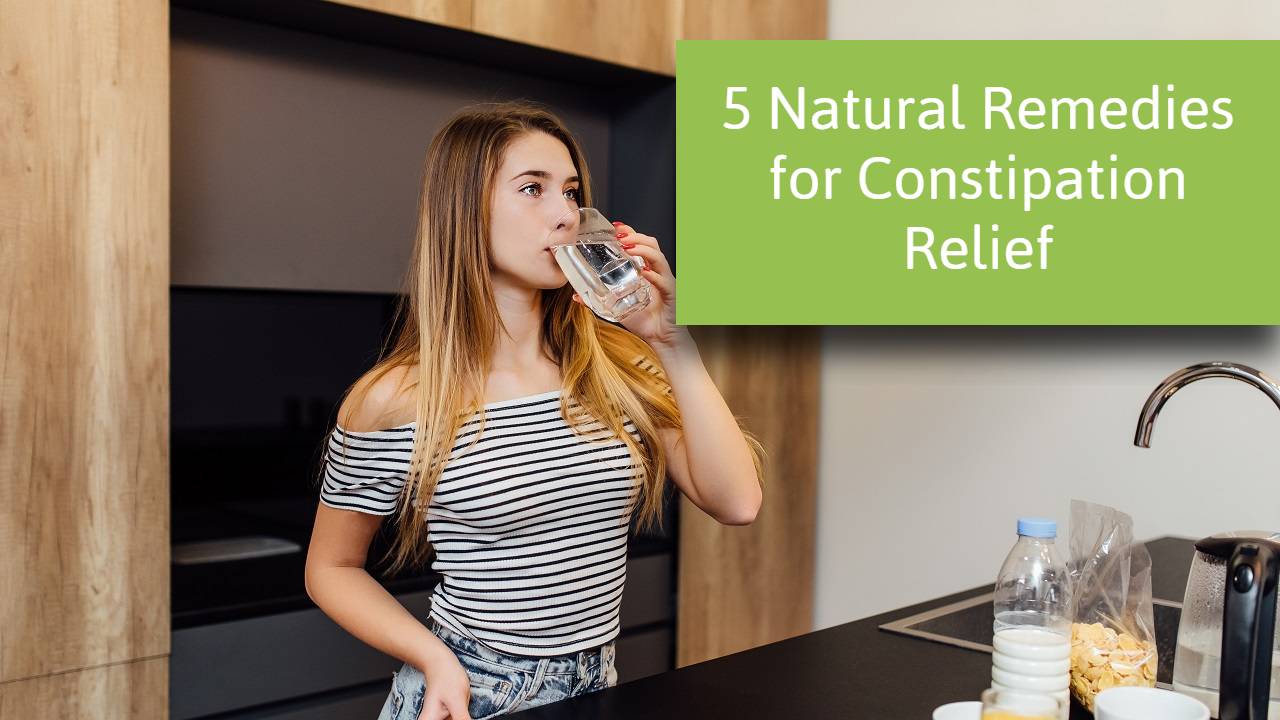
Experiencing occasional constipation is normal. However, when bowel movements become difficult or less frequent, it can be a sign of a more serious problem. Fortunately, there are a variety of natural remedies that can help to relieve constipation and promote regularity. Dietary changes, such as increasing your intake of fiber-rich foods, exercising regularly, and staying hydrated, can be helpful.
Drinking Herbal Laxative Teas
Herbal laxative teas are a popular natural remedy for constipation relief. Many different herbs can be used to make these teas, and each one has its unique benefits. Some of the most commonly used herbs include Senna, dandelion, and licorice root.
These herbs work by stimulating the digestive system and helping to move things along more smoothly. They can also help to increase the amount of water in the stool, which makes it easier to pass.
However, it’s important to drink them in moderation and not exceed the recommended dosage. Drinking too much of these teas can lead to diarrhea and other gastrointestinal problems.
Drinking Plenty of Water
One of the most effective is drinking plenty of water. Water helps to soften the stool and makes it easier to pass. It also helps to keep the intestines hydrated and prevents constipation from happening in the first place.
People who are constipated often feel bloated and uncomfortable. Drinking plenty of water can help to reduce these symptoms and make you feel more comfortable. It is important to drink eight glasses of water a day, or more if you are constipated. You can also try adding some lemon juice to your water, which can help to stimulate the digestive system.
Eating More Fiber
Fiber is a type of carbohydrate that the body cannot digest. It helps to add bulk to the stool and keeps it moving through the intestines. Foods that are high in fiber include fruits, vegetables, whole grains, beans, and nuts.
Most people need about 25 grams of fiber per day. However, if you’re constipated, you may need to increase your intake to 30-35 grams per day. You can do this by adding more high-fiber foods to your diet or by taking a fiber supplement.
Prune Juice
Prunes are high in fiber and have a mild laxative effect. They also contain sorbitol, a natural sugar alcohol that acts as a stool softener.
Prune juice is an easy and effective way to relieve constipation. Simply drink 8 ounces of prune juice once or twice per day. You may need to increase your intake if you are severely constipated.
If you don’t like the taste of prune juice, you can add it to other juices or smoothies. You can also take prune supplements in capsule or powder form.
Exercise Regularly
Exercise is another great way to relieve constipation. Exercise helps to stimulate the muscles in your digestive system, which can help to move things along. Just a few minutes of moderate exercise each day can make a big difference.
By trying these simple home remedies, you can find relief from constipation and get your digestive system back on track.
5 Benefits of Drinking Laxative Tea

Laxative tea is a type of herbal tea that is made using herbs that act as natural laxatives. Drinking laxative tea is a great way to improve your overall health.
It can help to relieve constipation, cleanse the colon, promote regularity, detoxify the body, and improve digestion.
If you are looking for a natural way to improve your health, then drinking laxative tea is a great option! Laxative tea can be a helpful tool for those who are struggling with other digestive issues. Additionally, laxative tea can help to detoxify the body and improve digestion.
Here are some of the potential benefits of drinking laxative tea:
Relief from Constipation
Laxative tea can help to relieve constipation by stimulating bowel movements. This can help to ease digestive discomfort and improve overall gut health.
Reduces Bloating and Gas
Bloating and gas can be embarrassing and uncomfortable. Luckily, there are things you can do to help reduce these symptoms. One simple solution is drinking laxative tea.
Reduces Abdominal Pain
Laxative tea is an all-natural remedy for abdominal pain and discomfort. This herbal tea contains a variety of ingredients that work together to provide relief.
Improve Digestive Regularity
Laxative teas are often consumed for their digestive benefits. These teas can help to improve regularity and relieve constipation. Laxative teas usually contain herbs such as senna, rhubarb root, and psyllium husk. These herbs work by stimulating the bowels and increasing stool output. Drinking a cup of laxative tea daily can help to keep the digestive system functioning properly.
Detoxify the Body
Laxative teas can help to flush toxins from the body and promote regularity.
In addition to helping to remove toxins from the body, laxative tea can also help to improve digestion and promote weight loss. Drinking laxative tea regularly can help to keep the digestive system working properly and prevent problems such as constipation and diarrhea. Additionally, laxative tea can help to boost metabolism and promote weight loss. These teas can be a helpful part of a detoxification program, but should not be relied on as the only method of cleansing the body.
What Are the Side Effects of Drinking Too Much Laxative Tea?

Laxative teas are popular for their supposed health benefits, but there are also some risks associated with drinking them. Some of the potential side effects of consuming laxative tea include dehydration, electrolyte imbalance, and kidney damage.
Dehydration is one of the most common side effects of drinking laxative tea. This is because the tea works by stimulating bowel movements, which can lead to fluid loss. It is important to stay hydrated when drinking laxative tea by drinking plenty of fluids throughout the day.
Electrolyte imbalance can also occur due to the loss of fluids from frequent bowel movements. This can cause symptoms like dizziness, weakness, and muscle cramps. It is important to replenish electrolytes by drinking sports drinks or eating foods high in electrolytes like bananas or avocados.
The Best Time to Drink Laxative Tea for Optimal Results
When it comes to taking laxative tea for optimal results, timing is everything. The best time to drink laxative tea is typically in the evening before bedtime. This gives the tea plenty of time to work its magic and get your digestive system moving first thing in the morning.
If you’re looking for a little extra help getting things started, try drinking a cup of laxative tea first thing in the morning. Just be sure to give yourself plenty of time before heading out for the day, as you may need to make a few trips to the bathroom!
Frequently Asked Questions About Best Laxative Teas
Is Green Tea a Laxative?
Yes, green tea is a laxative. It contains caffeine and the polyphenol EGCG, both of which stimulate the digestive system. Green tea also relaxes the smooth muscles of the intestine, helping to move food through more quickly. Green tea is not just a laxative, it’s also good for your health. Studies have shown that green tea can improve cardiovascular health, increase metabolism and fat burning, and protect against cancer. So, drink up! Green tea contains a type of fiber called pectin, which helps to bulk up stools and make them easier to pass. It also contains a compound called epigallocatechin gallate (EGCG), which has laxative effects. EGCG stimulates muscle contractions in the intestine, helping to move stool along. So, if you’re looking for a natural way to alleviate constipation, green tea may be worth a try. Just be sure to drink it in moderation – too much green tea can lead to diarrhea.
How Much Laxative Tea Should You Drink Each Day?
Laxative tea is a popular home remedy for constipation. But how much should you drink each day? Most experts recommend drinking 1-2 cups of laxative tea per day. However, some people may need to drink more, depending on the severity of their constipation. If you’re new to drinking laxative tea, start with 1 cup per day. If you don’t see any results after a few days, increase your intake to 2 cups per day. Drink your tea in the morning or evening, preferably 30 minutes before a meal.
Does Tea Cause Constipation?
No, it doesn’t. But excess of anything is bad, if you take excessive tea it may cause constipation, dehydration, and other problems. There are many different types of tea, and each type of tea has different effects on the body. Some teas, such as green tea, can help with constipation. Other teas, such as black tea, may make constipation worse. If you are suffering from constipation, it is important to consult with your doctor to see if drinking tea is the right decision for you. Other factors can contribute to constipation, such as a lack of fiber in your diet or not drinking enough water.
What Tea Is Good for Constipation?
When it comes to constipation, there are many different possible causes. For some people, it may be a result of a lack of fiber in their diet. Others may be dehydrated or have a medical condition that slows down the digestive process. Luckily, there are a variety of teas that can help to ease constipation and get things moving again. Senna tea is a popular choice, as it contains natural laxatives that can help to stimulate the digestive system. Other teas, such as chamomile and ginger tea, can help to relax the muscles in the intestines and promote easier passage of stool. Ultimately, the best tea for constipation will vary from person to person. However, nearly any type of herbal tea can be beneficial in soothing an upset stomach and aiding in digestion. So next time you’re feeling backed up, reach for a cup of tea and let nature do its work.
Can Tea Help with Constipation?
Yes, tea helps with constipation relief. For many people, constipation is a chronic problem that can be difficult to manage. Over-the-counter laxatives are often ineffective, and prescription medications can have undesirable side effects. As a result, people with constipation are always looking for natural remedies that might provide relief. Some believe that tea can be helpful for constipation, and there is some scientific evidence to support this claim. One study found that black tea helped to stimulate bowel movements in people with constipation. Another study found that green tea aided in the passage of stools and helped to reduce gut inflammation. While more research is needed, these studies suggest that tea may be a helpful natural remedy for constipation.
Does Green Tea Help with Constipation?
Yes, for centuries, green tea has been used as a natural remedy for a variety of ailments. One of the most commonly cited benefits of green tea is its ability to relieve constipation. Green tea contains caffeine and polyphenols, which are both thought to stimulate the digestive system and promote regular bowel movements. In addition, green tea is a good source of water, which is essential for proper digestion.
Is Tea A Laxative?
Yes, tea is a laxative. While there are many different types of tea, all of them contain caffeine. Caffeine is a natural stimulant that can help to speed up bowel movements. In addition, tea also contains tannins. Tannins are bitter compounds that can help to promote gut motility.
Is Green Tea Good for Constipation?
Green tea is a popular beverage that is packed with health benefits. One of these benefits is its ability to relieve constipation. Constipation is a common digestive problem that can be caused by many things, such as a lack of fiber in the diet. Green tea contains a type of soluble fiber called catechins, which can help add bulk to the stools and make them softer, making them easier to pass. In addition, green tea also contains caffeine, which can act as a natural laxative. If you are suffering from constipation, then drinking green tea may be a good remedy for you. However, it is important to note that green tea should not be used as a replacement for other treatments prescribed by your doctor. If your constipation persists after trying green tea, then you should consult with your doctor to find out other possible causes and treatment options.
Does laxative tea make you poop?
It is no secret that many people turn to laxative teas to relieve constipation or irregular bowel movements. But does drinking laxative tea make you poop? The answer is yes, laxative teas can help to stimulate bowel movements. This is because they contain herbs that have natural laxative effects, such as Senna and cascara sagrada. When these herbs are consumed in the form of tea, they can help to soften stools and make them easier to pass. Of course, it is important to remember that not all laxative teas are created equal. Some contain more potent herbs than others, so it is important to choose a tea that is right for your needs. For best results, drink 1-2 cups of tea per day, and be sure to stay hydrated by drinking plenty of water.
References:
Health Line
Medical News Today

 Upset stomach
Upset stomach Body Health
Body Health Mental Health
Mental Health Night & Morning
Night & Morning
